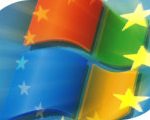Mozilla posts Firefox 3.5 RC1, announcement expected

The announcement has not yet been publicly made, but Mozilla posted a fresh build of Firefox 3.5 on its servers that it is officially calling Release Candidate 1. Not just "Release Candidate," which implies that a second round is indeed possible.
After a security run-in following some unrelated tests, we've found ourselves having to reset and restart our test platforms, so our usual round of Betanews performance tests is forthcoming. Also expect the latest numbers from the Opera 10 beta, which now includes provisions for the Unite browser-based server feature.
What will MySpace become after a 30% headcount reduction?

The question financial analysts are asking this afternoon in the wake of News Corp.'s layoff of 30% of MySpace employees is not, "Will this help?" Or even, "Does this make things better." It appears to be, "Will this be enough?"
In a frank statement this afternoon demonstrating he hasn't lost his touch since leaving AOL, News Corp.'s Chief Digital Officer Jonathan Miller pronounced the deed done, saying, "MySpace grew too big considering the realities of today's marketplace. I believe this restructuring will help MySpace operate much more effectively both structurally and financially moving forward. I am confident in MySpace's next phase under the leadership of [CEO] Owen [Van Natta] and his team."
How secure is Opera Unite?

The notion of converting conceivably every computer on the planet into a server is certainly not new. But almost everywhere the notion has been attempted, it's been exploited. Microsoft's ActiveX experiment in the mid-1990s was a notorious example of collective inattention to the entire topic of exploitability, though it's not the only one. Since then, millions have willingly made their Web clients into P2P servers in the interest of file-sharing -- authorized or not -- while some of them unknowingly exposed their file systems to the whole planet, exposing sensitive government documents in the process.
History tells us to be skeptical when any software purports to enable ordinary computers, especially Web browsers, to act as servers. This morning, Opera Software unveiled its Unite server networking protocols, which consist of extensions to the existing widget system for its Opera Web browser. The objective there is to enable any Opera user to be a server in her own right, potentially serving up blogs, tweets, and files. Opera's own bank of servers -- which are already put to use providing pre-rendered pages for its "Turbo" feature -- serves as an intermediate proxy for all communications between Unite-enabled browsers.
Mystery of the missing DTV transition panic

By all accounts thus far, last Friday's shutdown of the VHF and UHF video frequencies that supplied Americans with television service since the 1940s, took place without serious incidents. Although the Associated Press over the weekend cited FCC officials as estimating over 800,000 calls to its nationwide DTV call center, that number was trimmed significantly over the weekend, with estimates provided to Broadcasting & Cable up to Sunday coming in at 525,000.
While Friday alone saw a record 317,000 calls within a one-day period, believed to be a single-day record for a federal call center network, all reports indicate the network was prepared to handle the volume.
Bing vs. Google rematch after Microsoft upgrades explicit filtering

A few weeks ago, in our ongoing series of duels between the reigning champion search engine Google and the contender "decision engine" Bing, we gave Bing the edge in a battle of the image filters: With both search engines' explicit image filtering turned on, we were able to explore a very sensitive topic -- breast cancer -- and have Bing yield sensible and respectful, but sometimes graphic, images without presenting offensive content.
Since that time, as we reported last week, Microsoft has implemented a very practical concept for helping individuals and businesses to ensure filtering takes place -- this after complaints were raised about how ridiculously simple it is for any user to turn filtering off in both Bing and Google. As Bing General Manager Mike Nichols announced on Friday, the thumbnails of images which Bing deems to be of a sensitive nature will be sent through a specific URL, explicit.bing.net. That way, users can take extra steps to filter questionable content.
Firefox runs 11% faster in XP than Windows 7; IE, Opera run slower

Download Google Chrome for Windows 3.0.187.1 Beta from Fileforum now.
Since we began our periodic check of the relative performance of the rendering and JavaScript engines in Windows-based Web browsers, where we've seen them run about 14% faster on average now in Windows 7 RC than in Vista SP2, we've been asked...what about Windows XP? It certainly seems like the faster and more nimble platform of the three -- certainly all the netbook manufacturers seem to think so.
Earth to Europe: You won. Microsoft complied. Live with it.

A note of full disclosure first, to quell any dispute over which "side" I'm on: I've been a Windows user for 20 years. And today -- but perhaps not tomorrow -- my Web browser is Mozilla Firefox. Do I like Firefox? On days when it doesn't crash, yes. The moment someone else makes a more suitable Web browser than Firefox for my extremely heavy duty purposes, I will switch. I test the competition almost every day now, so I literally do mean the moment that happens.
The tying of Internet Explorer with Windows was a scheme by Microsoft to eliminate Netscape's market presence -- a devious, immoral, illegal, and effective scheme. Today, Netscape is nothing more than a flavor of an AOL Web portal page, a skin. No more damage can be done there. Does any technical reason remain for a Web browser to continue to be tied to, or bundled with, an operating system?
Europe: Microsoft's IE move gives Windows users no choice

The initial response from the European Commission this morning, to the news that Microsoft has decided to remove Internet Explorer from Windows 7 for European customers, is that it leaves customers no option or choice with regard to which Web browser they should install.
"The development of new online services makes Web browsers an increasingly important tool for businesses and consumers, and a lack of real consumer choice on this market would undermine innovation," reads this morning's statement from Brussels.
Microsoft to release Windows 7 in Europe without Internet Explorer

Saying that the company must abide by the law of the European Union, Microsoft Deputy General Counsel Dave Heiner revealed Thursday afternoon that it has made the decision to make a European "E" version of Windows 7 available to customers there, without Internet Explorer 8 bundled.
"We're committed to making Windows 7 available in Europe at the same time that it launches in the rest of the world, but we also must comply with European competition law as we launch the product," Heiner wrote. "Given the pending legal proceeding, we've decided that instead of including Internet Explorer in Windows 7 in Europe, we will offer it separately and on an easy-to-install basis to both computer manufacturers and users. This means that computer manufacturers and users will be free to install Internet Explorer on Windows 7, or not, as they prefer. Of course, they will also be free, as they are today, to install other Web browsers."
Top 10 Windows 7 features #1: Action Center

It's a sad fact which even Microsoft itself has stopped denying: The success of Windows in recent years has been despite the fact that the operating system isn't exactly embraced by its users. The percentage of Windows users who love Windows may not come anywhere near the percentage of Mac OS users who love Macintosh. Windows is what comes on most people's PCs.
In the past few months, Microsoft's marketing campaign has cleverly (and finally) diverted attention away from Vista, which on a public relations scale has largely failed to win the public's affection. Instead, you'll notice that the selling point of Windows recently is that it enables you to buy a bigger and better PC. Spend $1,500 or less and you're going to get twice the memory, twice the storage, and much better graphics. The word "Vista" doesn't even appear in the company's advertising. It's an effective argument -- what's more, it's accurate, and it's the strongest argument in Microsoft's favor.
Mozilla releases Firefox 3.0.11 update as Chrome 3 explodes in Win7
New Google Toolbar wants to be your next 'Start' button

The latest version of the Google Toolbar, now on version 6 for Microsoft Internet Explorer, remains the most convenient way to expedite searches through the Internet's most versatile search engine. But with each successive version, this one being no exception, Google tries to be a little more "in your face."
With changes coming to the taskbar in Windows 7, users are likely to arrange their running applications differently. Google appears to be taking advantage of this fact with the introduction of its own taskbar button that appears after you install Google Toolbar 6 for IE8. On many Win7 setups, including ours where we've tilted the taskbar vertically, the Google logo now situates itself right alongside Microsoft's, as if to say, "I'm here too."
T-Mobile: No, we did not say our security was breached

After an amended statement to the press yesterday regarding an apparent security incident, which appeared to confirm that an unauthorized entity had taken possession of its valuable customer information, T-Mobile now says in a statement to Betanews this afternoon that not only does the entity not possess customer information, but that no breach of security took place at all.
"Following a recent online posting that someone allegedly accessed T-Mobile servers, the company is conducting a thorough investigation and at this time has found no evidence that customer information, or other company information, has been compromised," the T-Mobile spokesperson told Betanews. "Reports to the contrary are inaccurate and should be corrected. T-Mobile continues to monitor this situation and as a precaution has taken additional measures to further ensure our customers' information and our systems are protected. As is our standard practice, customers can be assured if there is any evidence that customer or system information has been compromised, we would inform those affected as quickly as possible."
Recording artists claim their music is being boycotted over royalties

The fight over whether US terrestrial radio broadcasters should pay the same performers' royalties that Internet streaming radio broadcasters are paying, is getting extremely nasty. In a Facebook post this morning, the musicFIRST Coalition -- a group of recording artists who actively lobby in favor of equal royalties on all platforms -- stated it has filed a formal complaint with the Federal Communications Commission. In that complaint, the Coalition alleges that terrestrial broadcasters are actively boycotting airplay for its members' music.
As the Facebook post states, "According to the musicFIRST filing [with the FCC], one major radio group dropped a top selling artist's record after he spoke in support of performance rights legislation. The program director of a Florida radio station declined to add an artist's recordings to his station's playlist because the artist is listed as a member of the musicFIRST Coalition. Another director of programming told a representative of two prominent artists that the artist's support for the Performance Rights Act would have a 'chilling effect' on their relationship. And a Delaware radio station boycotted all artists affiliated with musicFIRST for an entire month."
Trillian Astra 4.0 beta goes public

Download Trillian Astra 4.0.0.109 beta for Windows from Fileforum now.
Last April, we profiled the initial beta release of Trillian Astra, the latest and most long-awaited version of one of the most popular multi-protocol instant messaging clients currently available for Windows. The new version is light years ahead of its predecessor with respect to its feature set, which now includes integration with Twitter, Skype chat, and e-mail in an effort to become a central console for online communication.
© 1998-2025 BetaNews, Inc. All Rights Reserved. About Us - Privacy Policy - Cookie Policy - Sitemap.

